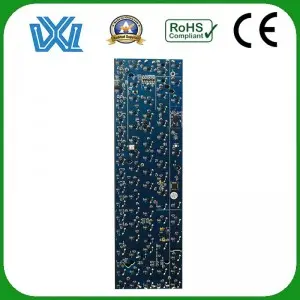Are you wondering what career options are available in the printed circuit board (PCB) field? PCBs have become an essential part of modern technology, ubiquitous in everything from smartphones to cars. As the demand for electronic equipment continues to grow, so does the need for professionals in PCB design, manufacturing and testing. So if you’re interested in technology and problem-solving, the PCB industry has plenty of exciting career opportunities waiting for you to explore. Let’s dig in!
1. PCB Designer: As a PCB designer, you will be responsible for creating blueprints of electronic circuits using computer-aided design (CAD) software. Your responsibilities include understanding technical requirements, designing efficient and reliable PCB layouts, and collaborating with engineers to ensure functionality and manufacturability.
2. Electrical Engineers: Electrical engineers in the PCB industry are involved in the design and development of electrical systems and components. The role includes tasks such as analyzing circuits, solving technical problems, and ensuring compliance with industry standards.
3. PCB Manufacturing Technician: PCB manufacturing technicians assemble and test printed circuit boards. They work closely with engineers to set up and operate manufacturing equipment, inspect completed boards, and resolve any production issues that arise.
4. Quality Control Inspectors: Quality control inspectors play a vital role in the PCB industry. They ensure that PCBs meet the required standards by conducting thorough inspections and tests throughout the manufacturing process. This includes checking for defects, verifying specifications and maintaining detailed records.
5. R&D engineers: PCB R&D engineers are responsible for exploring new technologies, testing innovative design concepts, and improving existing products. They stay abreast of the latest trends in PCB technology and work to improve overall product performance and reliability.
6. Field Application Engineers: Field Application Engineers support customers by assisting customers in integrating PCBs into their products. They provide technical guidance, troubleshoot and provide training to ensure seamless integration and optimal performance of the PCB.
7. Test engineer: The test engineer is responsible for developing and implementing test procedures to ensure the functionality and reliability of the PCB. They design test fixtures, conduct various types of tests, and analyze test data to identify and resolve any potential issues.
8. Sales and Marketing: The PCB industry also offers numerous sales and marketing opportunities. You can work with manufacturers and distributors to promote and sell PCBs, understand market trends and develop strategies to increase market share and revenue.
9. Project Manager: PCB project managers use their technical knowledge and organizational skills to oversee the entire PCB manufacturing process. They coordinate with diverse teams, manage timelines, allocate resources efficiently, and ensure projects are delivered on time and within budget.
10. Entrepreneur: If you are passionate about PCBs and have innovative ideas, starting your own PCB manufacturing or design company could be a rewarding career choice. This path requires strong business acumen, leadership skills and an entrepreneurial mindset.
In conclusion, the PCB world offers a wide range of career opportunities. Whether you like designing, manufacturing, testing or marketing, the PCB industry has something for everyone. As technology continues to advance, the demand for skilled PCB professionals will only grow, making this an exciting field. So, if you want to delve deeper into the world of PCBs, start exploring a path that matches your interests and skills today!
Post time: Sep-08-2023

